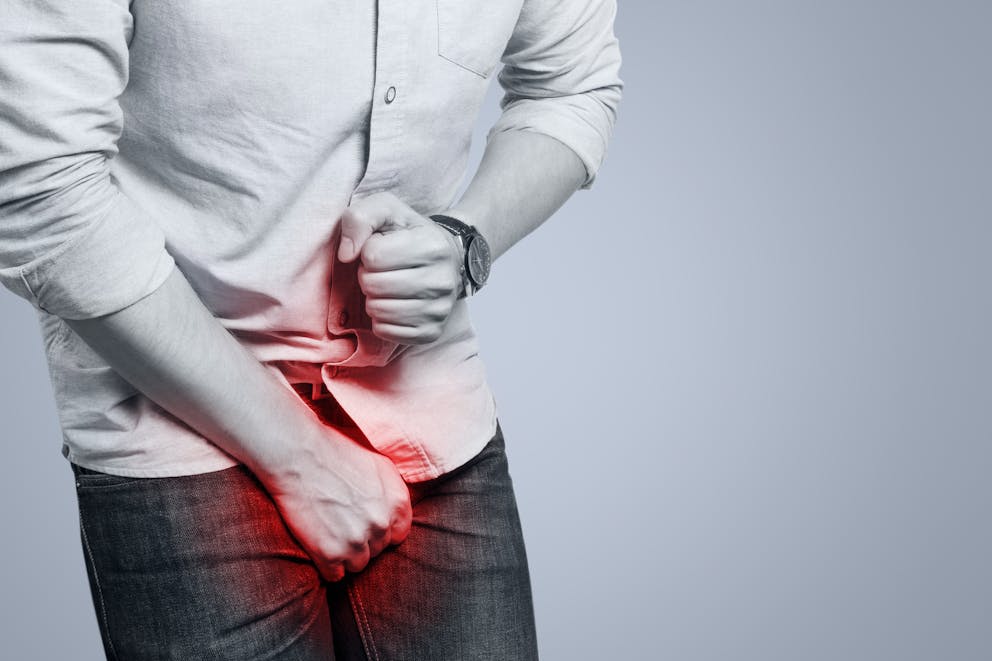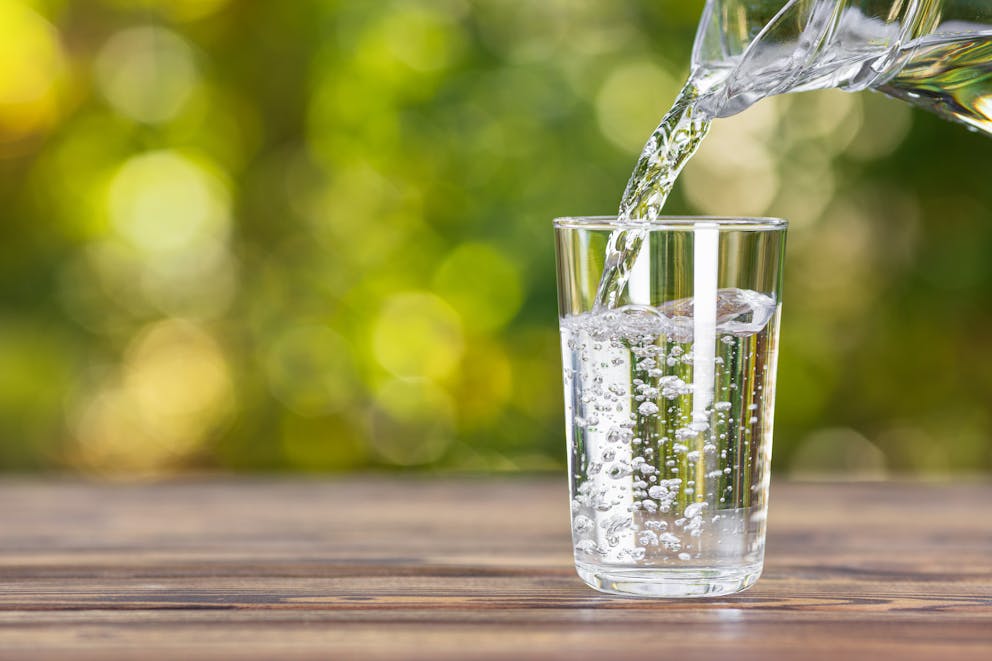What Is Urinary Retention?
Urinary retention is a condition where a person cannot fully empty their bladder, causing residual urine to remain in the bladder. If left untreated, urinary retention can lead to serious complications, including urinary tract infection, bladder damage, and kidney disease.
Let’s look at the causes of urinary retention and learn what steps you can take to support your kidney and bladder health.

Urinary retention explained
Urinary retention is characterized by the inability to pass urine or fully empty the bladder. While it’s a more common condition in older men, urinary retention can affect anyone at any age.
Several factors can cause urinary retention, including urinary tract infections, urinary tract obstructions, nerve issues, or hormonal imbalances.
Urinary retention is classified into three main categories:
Acute urinary retention - A sudden onset of urinary retention symptoms
Chronic urinary retention - Symptoms of urinary retention develop gradually over a period of time
Postoperative urinary retention - Short-term urinary retention caused by urinary catheter use during surgery
Watch the video below to learn more about the signs and symptoms of urinary retention and how you can support healthy bladder function.
Signs of urinary retention
Acute urinary retention can be a medical emergency. If you suddenly develop severe abdominal pain, have no or intermittent urine flow, and experience high blood pressure and chest pain, consult your doctor immediately.
Chronic urinary retention develops gradually and typically is accompanied by symptoms including:
Inability to fully empty the bladder
Difficulty starting or stopping the flow of urine
Weak urinary flow
Urge to urinate immediately after emptying the bladder
Mild lower abdominal pain

Causes of urinary retention
Several factors are linked to an increased risk of urinary retention in adults, including the use of certain medications, infections, swelling of pelvic organs, or nerve problems that lead to impaired control of bladder function.
Men are more likely to experience urinary retention. Benign prostatic hyperplasia, an enlarged prostate gland, can cause bladder obstruction and is one of the most common reasons for male urinary retention.
Research suggests that prostate cancer, urinary stones, acute prostatitis, and urethral stricture (the narrowing of the small, thin, flexible tube that empties urine from the bladder neck) are all risk factors for developing urinary retention.
The dangers of urinary retention for your kidneys
When the bladder is full but isn't completely emptied, urine can back up into the ureter and put pressure on the kidneys.
This can lead to an increased risk of developing kidney disease, kidney stones, long-term loss of bladder muscle control, and urinary incontinence.
Your kidneys are essential detoxification organs and crucial to maintaining electrolyte and protein metabolism. Urinary retention can lower the kidney's ability to filter your blood, resulting in metabolic impairments, imbalanced electrolytes, and increased accumulation of toxins within the body.
Additionally, if urine remains in the bladder for too long, it can lead to the growth of bacteria within the urinary system, which can cause urinary tract infections and other complications. These infections can spread and increase the risk of developing digestive and kidney diseases.

How to combat urinary retention
In most cases, urinary retention is a temporary problem. Medication, catheterization, or surgery to relieve bladder obstruction are typical interventions to treat urinary retention.
Fortunately, you can also take plenty of steps to support your kidney and bladder health and lower your risk of developing urinary retention.
1. Avoid carbohydrates and sugars
Evidence suggests that a high-carb diet can increase your risk of metabolic impairments linked to kidney damage and bladder dysfunction, including urinary retention.
Frequently consuming carbs and sugars can lead to a decreased ability to maintain healthy blood sugar levels, resulting in elevated blood glucose. Uncontrolled blood sugar levels are a stressor for your body and stimulate inflammation and cellular oxidation.
Because the kidney's primary role is to filter blood, kidney tissue is susceptible to the adverse effects of high blood glucose and inflammatory compounds in the blood.
A low-carb diet promotes kidney health, helps to reduce inflammation, and lowers the risk of metabolic imbalances that can lead to kidney damage and worsen urinary retention.
2. Avoid high protein intake
Kidneys excrete several by-products of protein metabolism, including urea and ammonia. Impaired kidney function can cause a buildup of these compounds in the blood, leading to metabolic imbalances, water retention, and bladder issues.
Consuming high amounts of protein can place an increased burden on your kidneys. Maintaining a moderate protein intake of no more than three to six ounces per meal ensures adequate protein levels without causing too much stress on your kidneys.

3. Stay hydrated and replenish electrolytes
While it may seem counterproductive, drinking plenty of water is crucial if you suffer from urinary retention. Without adequate fluids, your kidneys produce highly concentrated urine that irritates bladder muscles and worsens urinary retention.
Aim to consume at least seven cups of fluids daily. It’s best to drink most fluids early in the day to avoid frequent urination at night.
Potassium is a crucial electrolyte for kidney health and supports balanced urinary production. Eat more electrolyte-rich foods like leafy green vegetables and salad, and increase potassium-rich foods, including mushrooms, avocados, and pumpkin seeds.
Alternatively, find a good quality electrolyte supplement that doesn’t contain added sugars or dextrose.
4. Eat nutrient-dense, high-quality foods
Doing a Healthy Keto® diet is an excellent choice to support your kidney and bladder health.
Healthy Keto is a low-carb, moderate-protein, and high-fat diet that focuses on nutrient-dense, high-quality foods such as green leafy veggies, avocados, seeds and nuts, seafood, and full-fat dairy.
This dietary approach promotes kidney health by balancing electrolyte levels, supporting healthy blood sugar levels, and helping lower inflammation.
5. Eat more green leafy vegetables
Green leafy vegetables are rich sources of potassium and phytochemicals with potent anti-inflammatory and antioxidant properties.
This study found that regularly consuming green leafy vegetables supports kidney health and may lower the risk of chronic kidney disease.
Dandelion greens and watercress are excellent choices if you suffer from bladder dysfunction, including urinary retention. These green leafy vegetables are potent diuretics that promote urinary flow and help reduce water retention.

Key takeaways
Urinary retention is a condition where urine cannot fully be emptied from the bladder due to a loss of bladder muscle function or urinary obstruction, such as an enlarged prostate, urinary blockage, or bladder stones.
While most cases of urinary retention are temporary, acute urinary retention can be dangerous and should be treated immediately.
A low-carb, moderate-protein diet like Healthy Keto is ideal for promoting bladder health, supporting kidney function, and stimulating healthy urine flow.
FAQ
1. What is urinary retention?
Urinary retention is a urinary condition characterized by an inability to pass urine or fully empty the bladder. It’s more common in older men and women with multiple pregnancies.
Chronic urinary retention develops slowly and over prolonged amounts of time. In contrast, acute urinary retention happens suddenly and requires immediate treatment from health care professionals.
2. What causes urinary retention?
Urinary retention can develop as a result of several factors. Impaired pelvic floor muscles or bladder muscle function, nerve issues, kidney disease, or urinary infections can cause poor bladder drainage, low urine output, and urinary retention.
Prostate enlargement, infected prostate tissue, and bladder stones are the most common reasons for urinary retention in men.
3. What are the signs of urinary retention?
Symptoms of urinary retention include difficulty emptying the bladder during urination, the sensation of a full bladder immediately after urinating, intermittent urine flow, mild abdominal pain, and water retention.
4. Is urinary retention serious?
Acute urinary retention can be a medical emergency. If you experience severe pain in the lower abdomen, can’t pass urine, or develop high blood pressure, chest pain, or anxiety, it’s important to seek medical attention immediately.
Don’t ignore the signs of urinary retention. Chronic urinary retention can cause permanent bladder damage and may increase your risk of kidney damage and the development of kidney disease.
5. How do you fix urinary retention?
Treatment for urinary retention depends on the cause and severity of the condition. Surgery, medication, and catheters can be used to relieve urinary blockage.
A low-carb, moderate-protein diet like Healthy Keto is an excellent choice to promote bladder and kidney health and may lower your risk of urinary retention.
6. Does urinary retention cause kidney damage?
If left untreated, urinary retention can lead to kidney damage. When the bladder is full and cannot be emptied, urine can back up into the kidneys, causing damage and inflammation.
Previous blog
Health Benefits of Black CoffeeTags

Popular
08/21/2024
46.5K views
05/22/2024
40.9K views
11/18/2024
242.4K views
03/18/2024
11/21/2022




